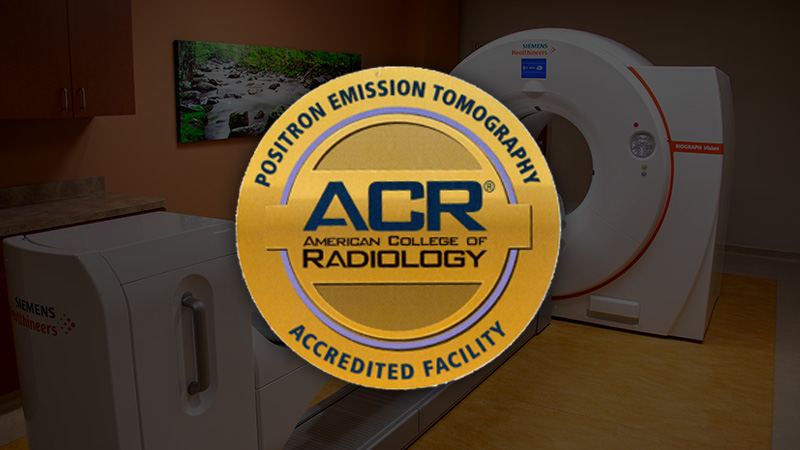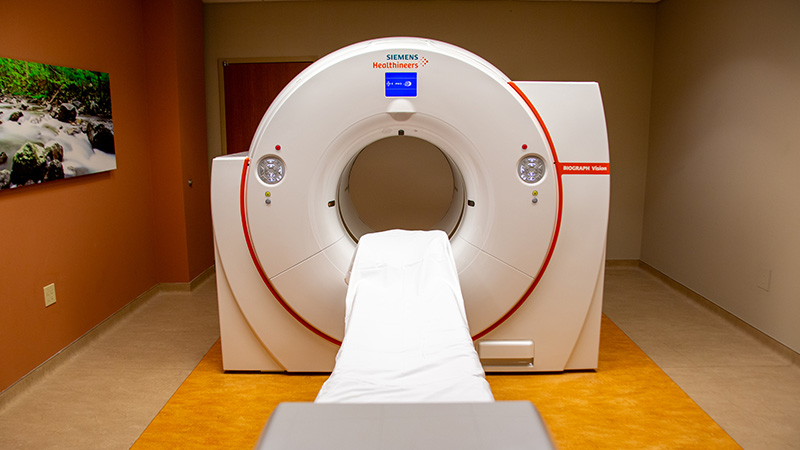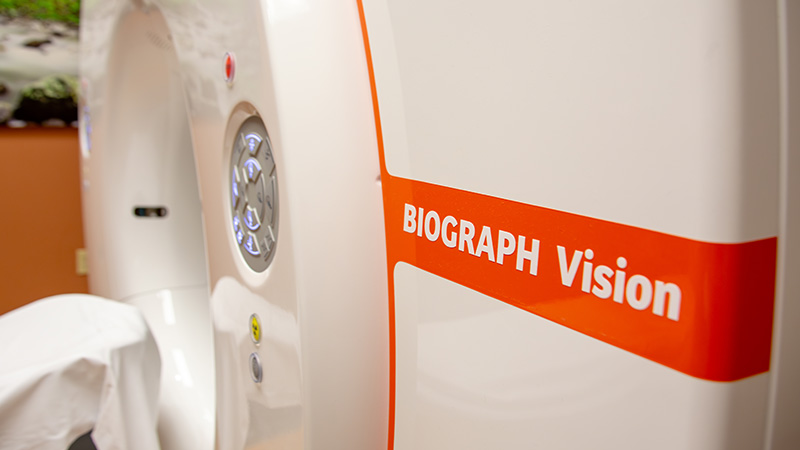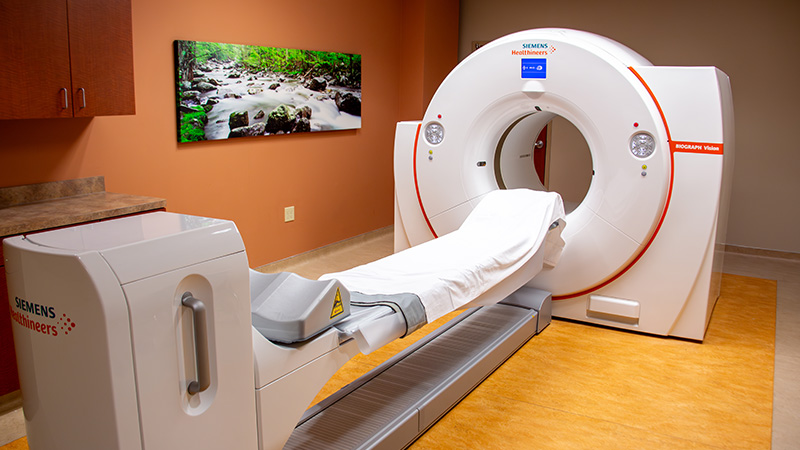What is PET/CT?
Positron Emission Tomography (PET) and Computed Tomography (CT) imaging are medical imaging tools that assists physicians in detecting disease. PET scans produce digital pictures that can identify many forms of cancer, damaged heart tissue and brain disorders. At the same time, CT images allow physicians to pinpoint the exact location, size and shape of the diseased tissue or tumor.
A PET/CT can provide physicians with information on:
- Cancer
- Alzheimer’s
- Epilepsy
- Parkinson’s
- Stroke Evaluation
- Brain Tumors
- Heart Disease
What to expect from a PET/CT scan
- A PET/CT scan is completely painless and has no side effects.
- Please fast for 4-6 hours before your appointment. You will receive an injection of a harmless amount of radioactive glucose, which is distributed throughout the body. About 30-60 minutes after the injection, you will empty your bladder, then lie down on a scanner bed. Images will be taken of your body as you lie still on the scanner bed.
- A typical scan takes approximately 30 – 60 minutes, depending on the type of scan you are having (i.e., whole body, brain, etc.) You can expect to be at the imaging center for approximately 2 hours from start to finish.
Preparing for your scan
- Please arrive approximately 15 minutes before your scheduled appointment time to allow for the registration process.
- Dress comfortably and warmly. Scanner rooms can sometimes be cool.
- Avoid eating anything for at least 4-6 hours before your scan (this includes sugar-free gum, mints, candy and beverages other than water).
- No strenuous exercise the day of your exam (example: working out, jogging, etc.).
- Be prepared to lie still while the scan is performed.
Diabetics
If you are diabetic, eat and take your insulin or oral medication as directed by your physician. Generally, your blood sugar level should be 100-200 mg/dL before your PET scan. Test your blood sugar level before the PET scan. Make sure that the PET center staff knows that you are diabetic.
Results
Your PET scan results will be reported to your referring physician, usually within 1-2 business days. Your referring physician will contact you with your results.




